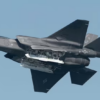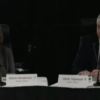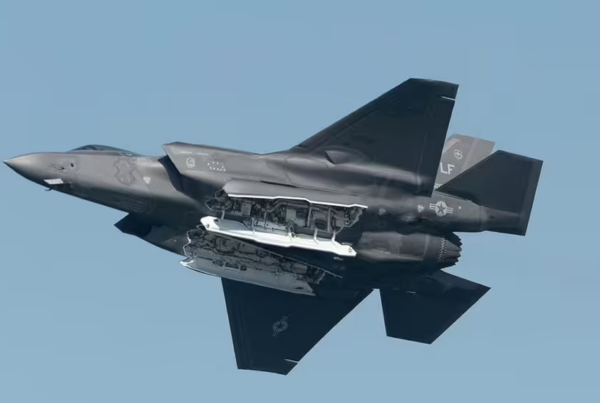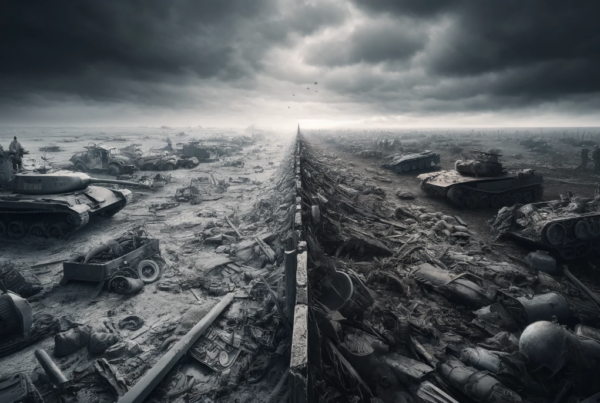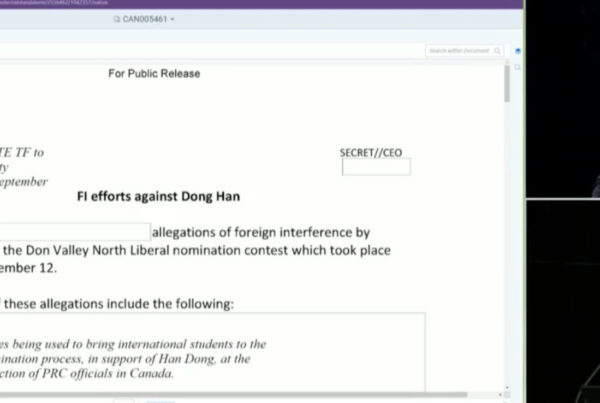Canadians are concerned about crime and personal safety. While crime rates have been dropping in recent years, this has more to do with demographics than any government’s action or initiatives. As things stand, the dropping crime rate has little to do with effective policing, effective courts, or the deterrence of punishment. In fact, the single most effective blow that Canadian authorities have taken against crime rates was the 1994 reduction in cigarette taxes… a step that may soon be reversed. Beyond that, Immigration authorities have recently stepped up the deportation of foreign-born criminals, but this step does nothing for our home-grown ones. Moreover, the trend towards reduced crime rates could easily reverse and with startling effect.
For a start, Canada’s police are seriously overstretched. In most major cities, if you have been the victim of some petty crime – minor vandalism or casual theft, the police cannot help you, except to offer a sympathetic ear and some easy advice. Things are worse elsewhere in Canada where there are large regions that are barely protected. The RCMP, besides being the Federal police force, provides the provincial presence for all the provinces (barring Ontario and Quebec) and the territories. It is the largest police force in the country and a recognizable Canadian symbol (The marketing rights to the RCMP’s image were bought by the Disney Corporation in 1995 — we are not making this up). The Mounties are stretched tighter than a miser’s dollar.
The first real sign of trouble came in the early 1990s in the Maritimes. After a gang of bullies terrorized a rural Nova Scotia community for many months, the RCMP did manage to arrest one local hero who tried to defend his home and family, in the virtual absence of the Mounties. At the behest of their comrades, some members of the gang killed the man in a Halifax jail. If, between the Mounties and the Nova Scotia government, there had been adequate policing resources in the area, the husband and father might not have had to take the law into his own hands.
More recently, in Northern Alberta, a small band of “environmentalists” had attacked gas and logging sites in the Peace River area for some years. In recent years, the group which is alleged to be behind the attacks (a small religious cult with a very domineering leader) has resorted to bombs and gunfire. The local RCMP Detachment were seriously overstretched and could barely handle the routine policing requirements of the area, let alone pursue the investigation of the attackers. In the end, an enormous amount of public cooperation was needed to secure an arrest.
The head of the RCMP detachment in the Peace River Area is a very skilled and professional Mountie – an example of the force at its best. (Although some people might have reservations after it transpired that the RCMP set off a bomb of its own as part of the investigation process). However, his mere presence itself represents a misallocation of resources. This sergeant was with one of the RCMP’s Commercial Crime Units, but these desperately needed investigation teams are being starved of resources and wound down. Apparently, massive white collar crime isn’t much of a priority so far as Ottawa is concerned (the uncharitable are free to speculate as to why this may be so).
Recently, the Director of CSIS indicated that every major terrorist group in the world has some presence in Canada. This presence usually consists of elements involved in raising funds, generating political support among expatriates, and acquiring other resources. It should also come as no surprise that every major organized crime group on the planet also has a foothold in Canada. Given the predilection for both to raise funds through business and commercial fraud, one might think more commercial crime resources are needed. Moreover, purely criminal fraud and white collar crime are also common activities.
Last year, some RCMP investigators who had spear-headed major investigations into organized crime circles complained that the funding to undertake these tasks was being cut. If the Mounties lack the wherewithal to really go after organized crime, one can imagine what the long term effects will be. (One aside begs to be asked: Why not use the funding assigned to the Firearms Registry — which has proven to be an expensive and unnecessary boondoggle from the start).
Paul Palango’s recent book on the Mounties, The Last Guardians (McClelland & Stewart, 1998), makes some sharp observations about the decline in the RCMP’s effectiveness. The causes of this decline include the same elements behind the Armed Force’s diminished effectiveness. Palango went back to the dismantling of the financial controls that kept a lid on Federal spending in the 1960s, and the resulting epidemic of waste and mismanagement. Now, of course, years of squalid practices must be curtailed — but most Canadian governments have decided to cut the muscle and spare the fat.
Worse, the senior ranks of the Mounties also seem to have become politicized. The blame for this, so far as Palango is concerned, should be laid on Canadian political leaders – especially those from Quebec. Promotion policies, roles and budgets had all been used to twist the RCMP into a vulnerable position wherein senior officers had to learn to play the political game in self-defence. As a similar evolution had occured in the Department of National Defense, Palango’s arguments ring true. However, in both institutions the real story is more complex, and the senior ranks are not entirely blameless.
An additional problem that has plagued the RCMP is reform for its own sake; or, worse still, reform in accordance with “progressive” viewpoints. The Postmodernist ethos that infects contemporary life has little regard for history, or for real facts. The RCMP, like too many other institutions. had been “reformed” to bring it into line with “modern” sensibilities. In this case, the primary instrument of destruction was the MacDonald Commission — wherein the RCMP was derailed and disrupted. Curiously enough, one of the two Security Service Agents whose complaints got the Commission instigated was Gilles Brunet, who also acted as a paid agent for the Soviets. (The case against Brunet was originally laid down by a 1991 Fifth Estate documentary which has been upheld by subsequent investigations).
As a large organization with equally large responsibilities, the RCMP would face considerable problems without the handicaps of politicization, resource depletion and inane policy directives. The Force must provide almost as diverse a set of skills as the military, but with even fewer facilities and deployment opportunities. In other words, a Mountie might end up as a community police officer in a rural area, a starched and drilled member of the Musical Ride, a forensic accountant or an undercover narcotics officer in a foreign country. These diverse requirements place strains on training facilities, deployment policies, and the pay-roll. Sometimes, a superhuman dedication is needed for an officer to remain on the force.
Finally, the RCMP is under a lot of public pressure these days. Unlike the largely exaggerated reports of wrong-doing that led to the MacDonald Inquiry, some Mounties have been involved in distinctly unsettling behaviours. There are incidents of behaviour around the APEC protests in late 1997 that are distinctly chilling — although they do point out the absolute vulnerability of police to political pressure. If political leaders (who often have their hands on the fiscal and career control levers for any police officer) direct a cop into error, it is very hard for him to refuse. It is hard for most people with a family to refuse to obey a superior on a point of honour.
Police officers in tactical response (or “SWAT”) teams are also generating their rightful share of controversy these days, and the RCMP has some things to answer for. But the high-handed behaviour of tactical teams is another issue and one that isn’t restricted to the Mounties.
However, the RCMP’s detonation of a bomb in the Peace River area as a part of an investigation has disturbed many people. It shouldn’t. The local Mounties were under a lot of pressure to wrap up the investigation of the three-year bombing and vandalism campaign in the area. They were stretched tight, and the lengthy negotiations between Edmonton and Ottawa about who would pay for the deployment of three new officers were still dragging on. Things had also got to the point where the citizenry (who had a pretty clear notion of who the leading suspect was) were asking pointed questions about vigilantism and armed self-defence. If an arrest wasn’t made in the near future, local elements were more than prepared to take the law into their own hands.
If the RCMP remains so stretched in future, the next time a similar incident occurs, this just might happen.

